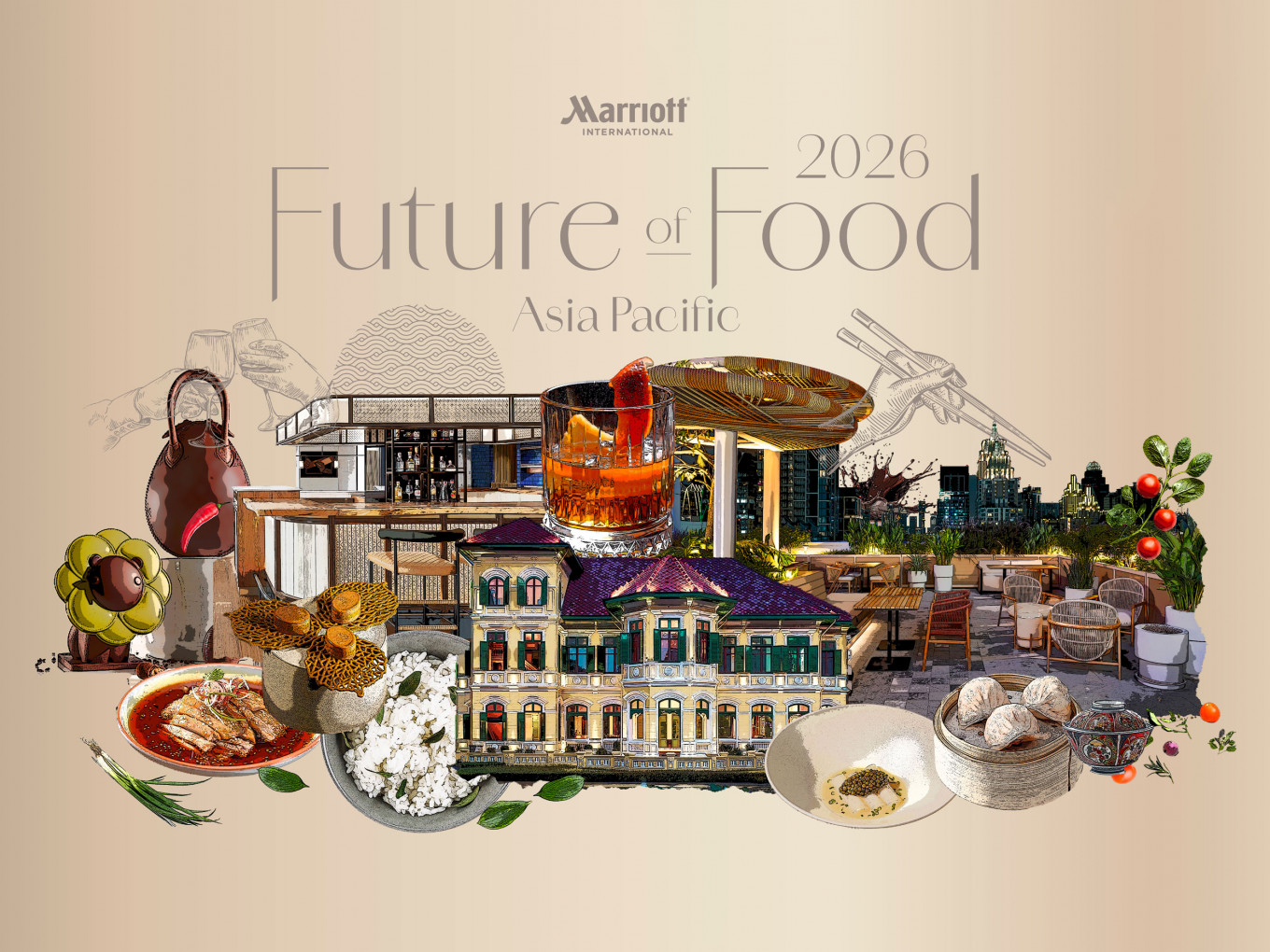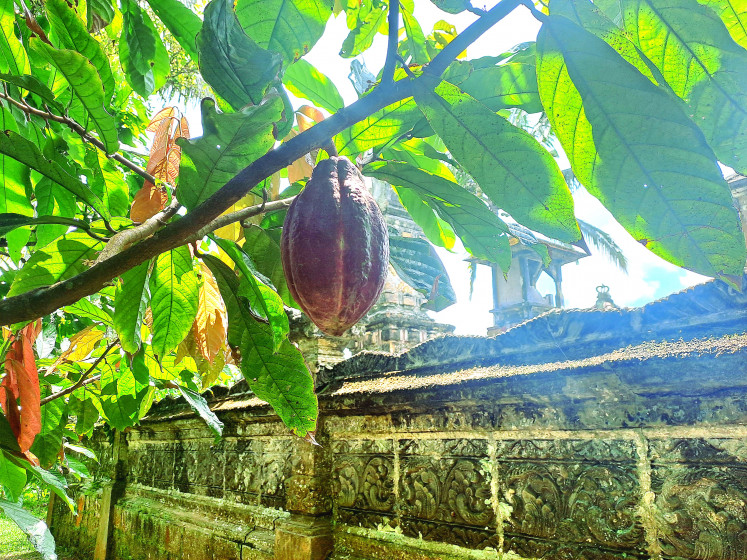Popular Reads
Top Results
Can't find what you're looking for?
View all search resultsPopular Reads
Top Results
Can't find what you're looking for?
View all search resultsMarriott International’s ‘The Future of Food’ report charts Asia-Pacific’s culinary future
Change text size
Gift Premium Articles
to Anyone
M
arriott International has unveiled The Future of Food 2026 report, in which it explores how changing dining habits and preferences across the Asia-Pacific considers storytelling, entertainment and thoughtful design to be just as important as the food served.
Drawing on insights from over 30 influential chefs, mixologists, industry insiders and food media in the region, along with findings from Marriott’s inaugural regional survey of food and beverage (F&B) teams at 270 properties across 20 Asia-Pacific markets, the comprehensive study spotlights a shift away from traditional fine dining toward casual luxury, comfort-driven menus, immersive dining experiences and a renewed reverence for local flavors.
“The Future of Food 2026 showcases how the Asia-Pacific continues to shape the future of global dining,” says Petr Raba, Marriott International’s F&B vice president for the Asia-Pacific, excluding China.
“From the rise of casual luxury to experience-focused dining, today’s guests are seeking emotional connection as much as culinary excellence. This report reflects our ongoing commitment to evolving with the industry and delivering dining experiences that are culturally relevant, rooted in place and reimagined for a new generation of travelers,” he adds.
“Across Asia, a new culinary language is emerging, one where quality meets comfort, luxury meets experience and a meal is no longer just about eating, but about engaging all the senses. As our report shows, food is no longer just fuel; it’s a form of storytelling, identity and cultural connection,” says Raba.
Among the report’s insights is the rise of the "fine casual" concept, where comfort food meets creative refinement and traditional multicourse menus give way to faster, more flexible experiences.
Fifty-nine percent of Marriott International’s Asia-Pacific properties surveyed said guests were opting for casual dining experiences over formal ones compared to last year. Dining is also turning into a feast for all senses, with 48 percent of Marriott International F&B associates reporting an increase in guests seeking interactive dining experiences compared to the previous year.
Chefs are also embracing local ingredients as integral components of their culinary identity, drawing on individual heritage and personal expression. Among the Marriott International properties surveyed in the Asia-Pacific, 85 percent now incorporate locally sourced ingredients or dishes into their offerings, signaling a growing appetite for seasonal food.
In addition, artificial intelligence has become more embedded in the hospitality industry to drive AI-powered menu engineering, leverage real-time feedback and optimize dish combinations and pricing. Of the Marriott International properties surveyed across Asia-Pacific, 76 percent are adopting booking management technologies, while 75 percent report that social media influences guest decisions around restaurant and bar bookings.
At the same time, Indonesia, the Philippines, Vietnam and Mainland China are gaining international recognition for their vibrant and diverse food cultures, while a new wave of third-generation chefs trained in Michelin-starred kitchens is revolutionizing Asian cuisines by employing modern cooking techniques and engaging with native ingredients to elevate and refine cuisines.
To explore the trends shaping the culinary future of the Asia-Pacific, download the full report here.










